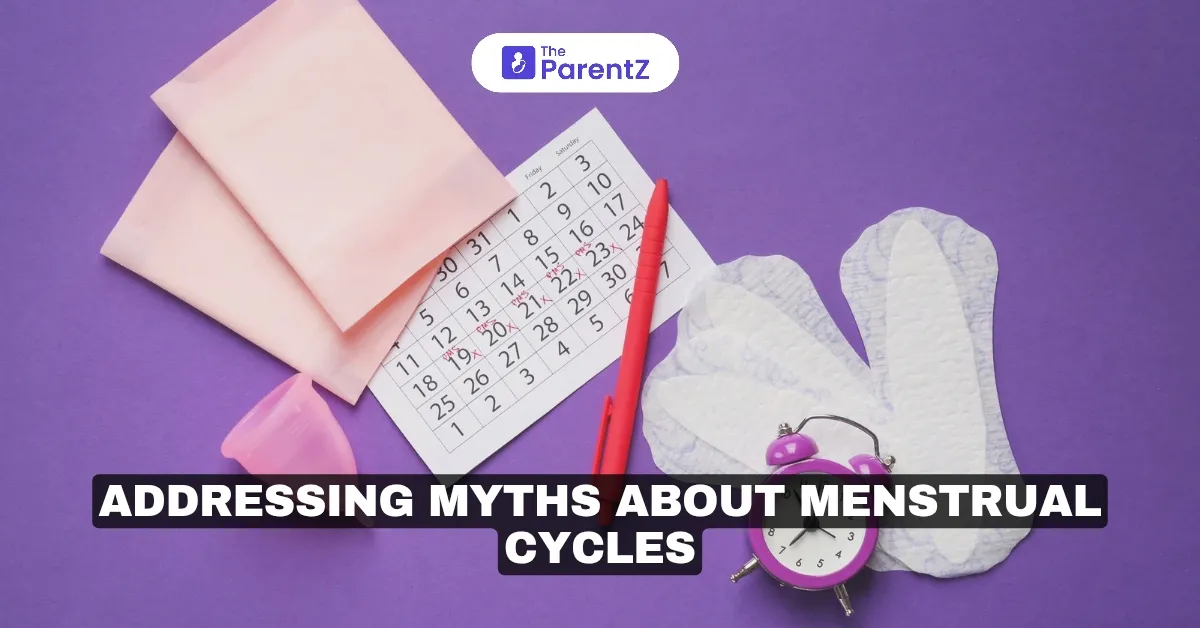Menstruation is a normal biological process, yet it remains surrounded by myths and taboos. Misinformation can lead to shame, fear, and confusion for young girls experiencing their periods for the first time. Parents play a crucial role in busting these myths and creating a safe, supportive environment for their children.
As a menstrual health expert, I’ve come across many misconceptions that have been passed down through generations. In this article, I’ll debunk 10 common period myths, explain how parents can address them, and share practical strategies to help children embrace their menstrual health with confidence.
10 Common Period Myths (and the Truth Behind Them)
1. Myth: Menstruation is Dirty or Impure
Fact: Menstruation is a natural process where the uterus sheds its lining. Menstrual blood is no different from regular blood, except it contains some uterine tissues. It is neither dirty nor impure.
Tip for Parents: Avoid using words like “unclean” or “impure” when discussing periods. Teach your child that menstruation is a healthy and natural part of life.
2. Myth: You Shouldn’t Exercise During Your Period
Fact: Exercise reduces cramps and improves mood by releasing endorphins (natural pain relievers). Light activities like yoga, walking, and stretching can actually help alleviate discomfort.
Tip for Parents: Encourage your child to stay active. If they experience discomfort, suggest gentle movements rather than complete rest.
3. Myth: If You Miss a Period, You Must Be Pregnant
Fact: While pregnancy is one reason for a missed period, stress, hormonal imbalances, excessive exercise, and certain medical conditions (like PCOS) can also affect the menstrual cycle.
Tip for Parents: Reassure your child that occasional irregularities are normal. If their periods become consistently irregular, consider consulting a doctor.
4. Myth: You Can’t Swim During Your Period
Fact: Swimming is completely safe during menstruation. Tampons, menstrual cups, and period-proof swimwear make it easy to swim comfortably. Water pressure also temporarily slows menstrual flow.
Tip for Parents: If your child enjoys swimming, teach them about different menstrual products so they can stay active without worry.
5. Myth: Period Blood is Different from Regular Blood
Fact: Menstrual blood is regular blood mixed with uterine tissue and mucus. It is not toxic, harmful, or dirty in any way.
Tip for Parents: Use science-based explanations to help your child understand what period blood is and why it’s completely normal.
6. Myth: You Can’t Get Pregnant While on Your Period
Fact: While the chances of pregnancy during menstruation are low, it is not impossible. Sperm can survive in the body for up to five days, and ovulation timing varies.
Tip for Parents: If your child is old enough to learn about reproductive health, provide them with accurate information about fertility and menstrual cycles.
7. Myth: Period Pain is Just an Excuse to Avoid Work or School
Fact: Menstrual cramps can be severe and debilitating, especially for individuals with conditions like endometriosis or PCOS. Painful periods should be taken seriously.
Tip for Parents: Acknowledge your child’s pain and help them find relief strategies, such as heat therapy, hydration, or pain relievers if necessary.
8. Myth: Using Tampons Can Take Away Virginity
Fact: Virginity is a social concept, not a physical condition. A tampon may stretch the hymen, but it does not “take away” virginity.
Tip for Parents: If your child is curious about tampons, educate them with facts and let them know that hymens have nothing to do with virginity.
9. Myth: Girls Shouldn’t Talk About Their Periods Openly
Fact: Discussing menstruation normalizes the topic and helps break societal stigma. Open conversations lead to better education and awareness.
Tip for Parents: Create a safe space where your child feels comfortable discussing their period without embarrassment or shame.
10. Myth: Eating Sour or Cold Foods Can Stop or Worsen Your Period
Fact: No scientific evidence supports this claim. A balanced diet is important for overall menstrual health, but sour or cold foods have no effect on menstrual flow.
Tip for Parents: Encourage your child to focus on nutrition rather than fearing certain foods during their period.
How Parents Can Empower Their Children?
1. Start the Conversation Early: Talk about menstruation before your child’s first period so they feel prepared.
2. Use Correct Terminology: Avoid euphemisms like “Aunt Flo” or “that time of the month.” Call it what it is, a period or menstruation.
3. Provide Accurate Information: If your child has questions, answer them honestly. If you don’t know something, research credible sources together.
4. Normalize Period Products: Teach your child how to use pads, tampons, and menstrual cups so they feel confident choosing what works best for them.
5. Encourage Self-Care: Help your child manage cramps, stay hydrated, and maintain good hygiene during their period.
6. Challenge Social Stigma: Encourage your child to speak up against period shaming and embrace their body’s natural processes.
7. Celebrate the Milestone: A first period is an important moment in a child’s life. Acknowledge it positively and offer support.
Final Thoughts
Busting menstrual myths is not just about correcting misinformation but it’s about empowering children with confidence and knowledge. As a parent, your role is crucial in shaping how your child views their body and menstruation. By creating an open dialogue, providing accurate knowledge, and debunking harmful myths, you can help your child embrace their period with pride and self-assurance.
Remember, menstruation is not a taboo but it’s a sign of health, growth, and strength. Let’s work together to raise a generation free of period stigma!





Be the first one to comment on this story.